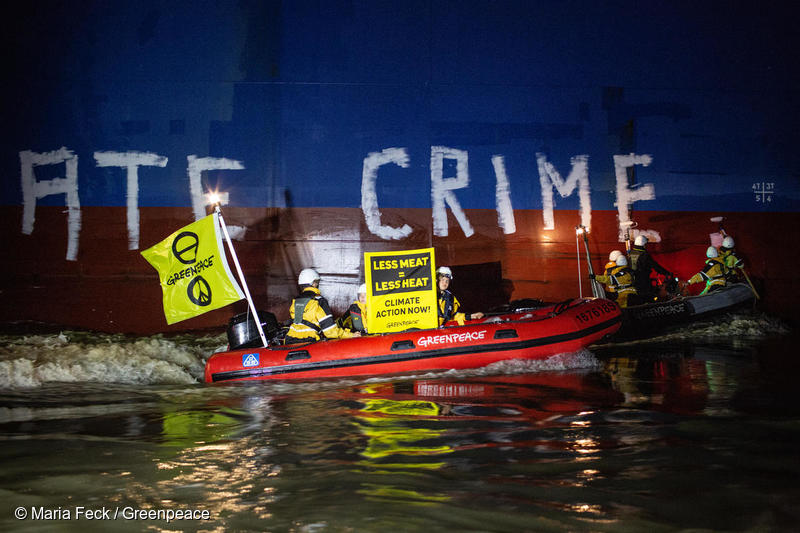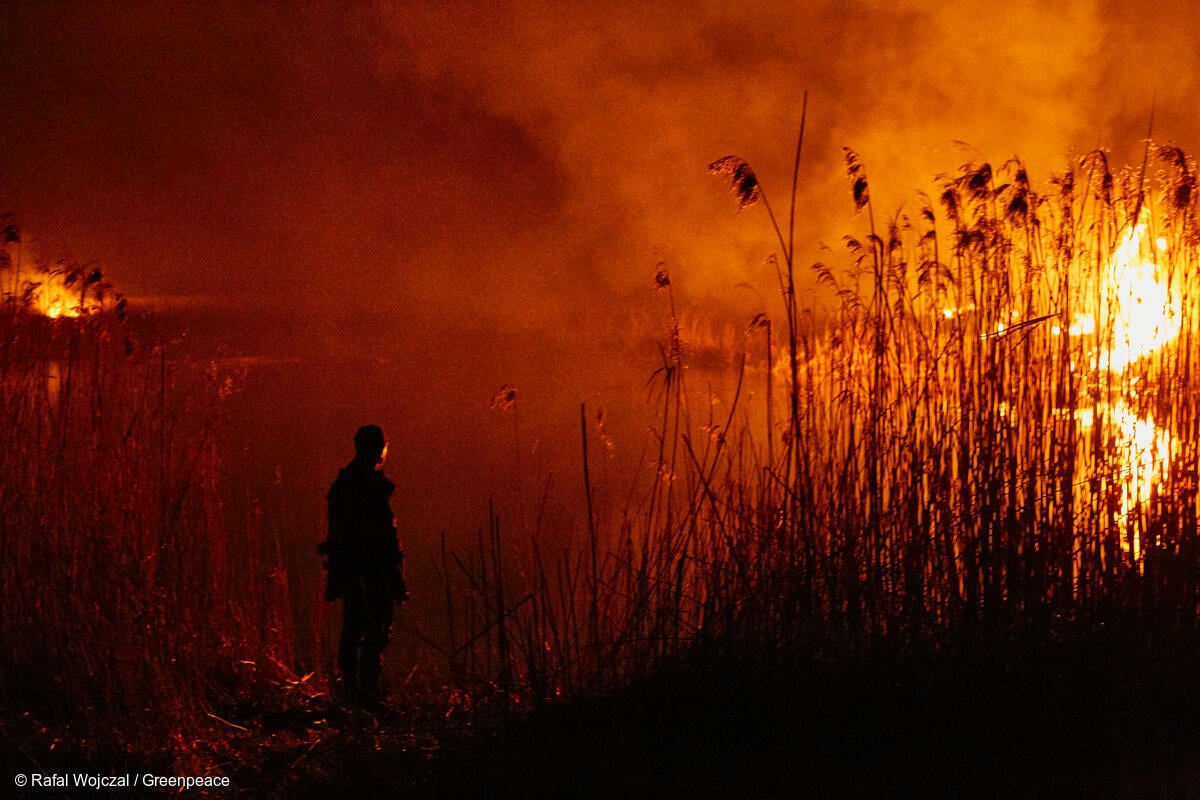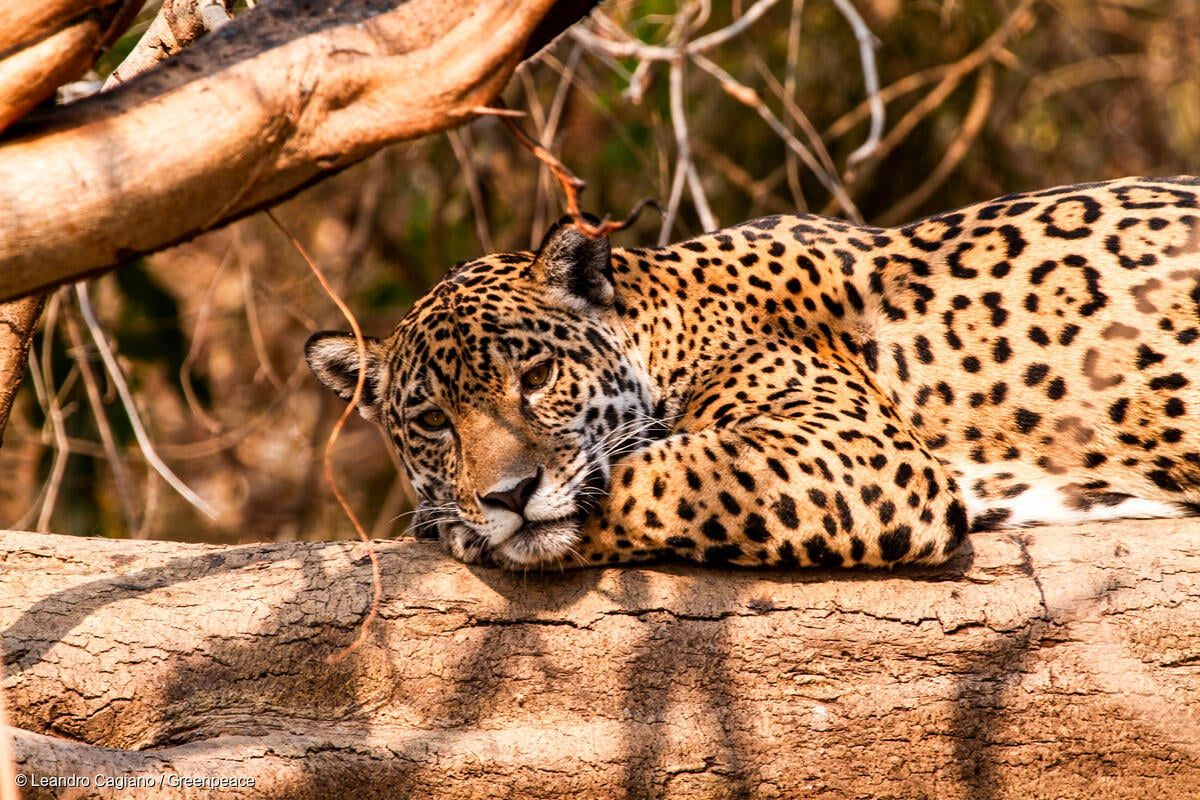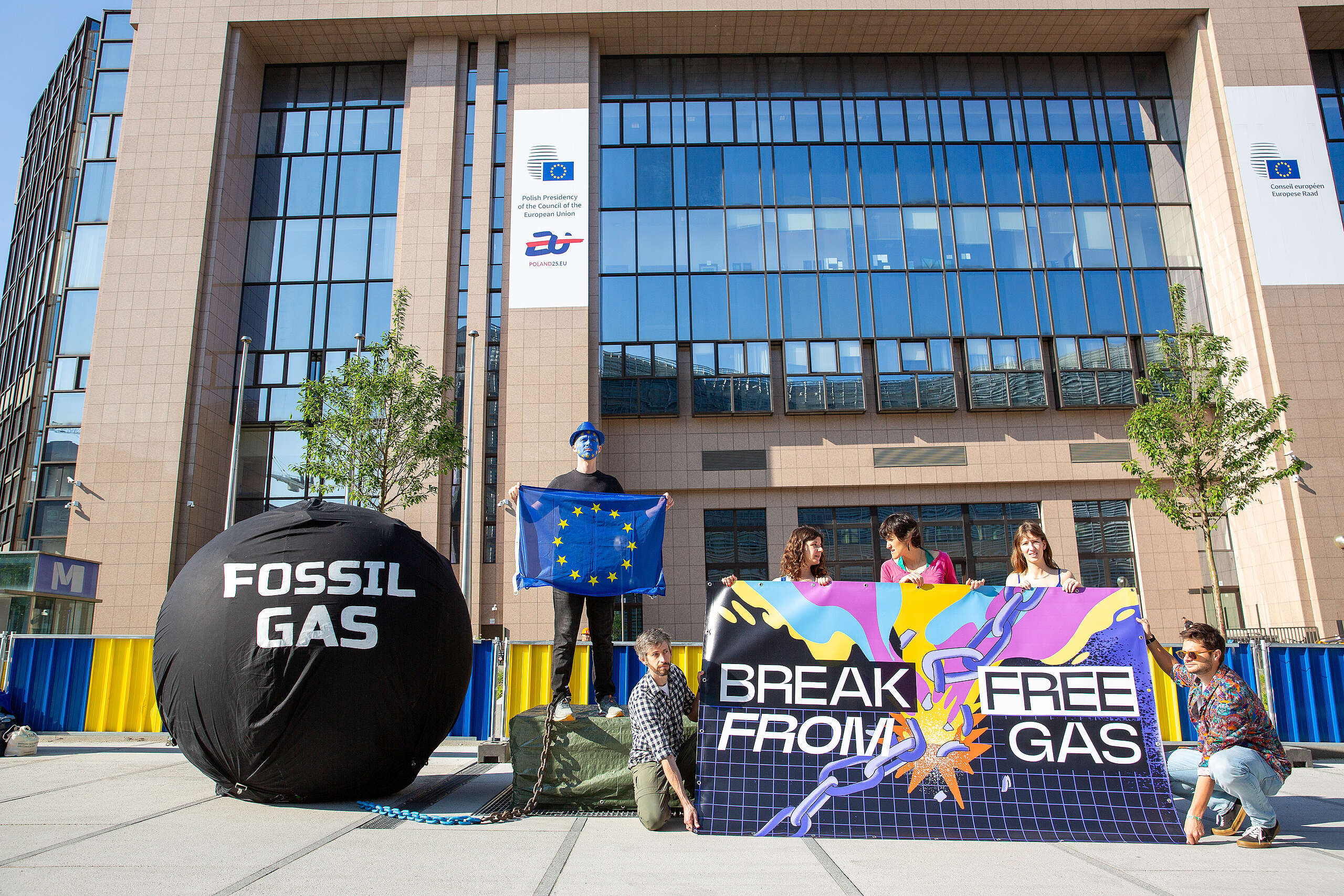
Protest in Germany against soy animal feed shipment from deforested areas in Brazil.
EU Green Deal must begin shift to climate change-resilient farming, Greenpeace
Brussels – A landmark UN report on the impact of human land exploitation has exposed a giant gap in the EU’s climate action, warned Greenpeace.
The report, by the Intergovernmental Panel on Climate Change, found that 23% of greenhouse gas emissions stem from deforestation, fires and farming. It urges the protection of forests and a radical shift in how we farm, and what we produce and eat to respond to the climate crisis and to save animals and plants from extinction.
The report comes as work is already underway to draft a ‘European Green Deal’, which the incoming European Commission president, Ursula von der Leyen, has pledged to deliver in her first 100 days in office. The plan has the ambition to kick-start a transformation of the European economy and to deepen cuts in greenhouse gas emissions. But von der Leyen has so far failed to acknowledge the need to address the impact of farming and meat consumption.
Greenpeace agriculture campaigner Sébastien Snoeck said: “A European green deal that doesn’t rethink how we farm and what we eat will neither be green, nor new. Farmers are on the front line of the ecological and climate crisis. National governments and the EU need to help them move away from industrial agriculture and towards more resilient, ecological farming that works in harmony with nature and can withstand climate impacts like droughts and floods. This will require a radical shift away from industrial meat production, freeing up swathes of land now used to produce animal feed and reducing dependence on feed imports linked to massive deforestation. Our diets will also have to change to protect nature and the climate, and promote food security.”
European governments and the European parliament are currently negotiating a review of the EU’s Common Agricultural Policy.
Greenhouse gas emissions from European farming have been rising steadily since 2012, according to the European Commission. Animal farming alone contributes 12-17% of the EU’s total greenhouse gas emissions. Farm animals emit greenhouse gases themselves and are often fed commodities like soy, which are linked to deforestation and habitat destruction, and have a major climate footprint.
Europeans eat twice as much meat as the global average. Greenpeace is calling for a 50% reduction in global meat and dairy production by 2050.
***More comment and analysis on the IPCC land report
Contact: Greenpeace EU press desk: +32 (0)2 2741911, [email protected]
For breaking news and comment on EU affairs: www.twitter.com/GreenpeaceEU
Greenpeace is an independent global campaigning organisation that acts to change attitudes and behaviour, to protect and conserve the environment and to promote peace. Greenpeace does not accept donations from governments, the EU, businesses or political parties.



